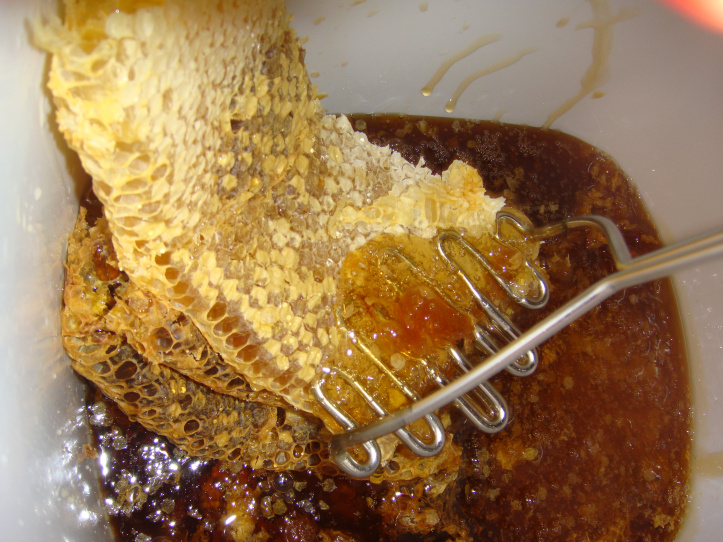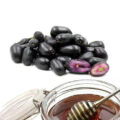Honey is a naturally sweet and golden liquid that tastes delicious on warm toast and works well in both sweet and savory recipes. “Nigeria currently produces about 15,000 tonnes of honey and 2,500 tonnes of bee wax annually, less than three percent of her potential 800,000 and 70,000 tonnes respectively. Honey is many things to many people. It’s a nutritious, natural sweetener, a concentrated energy source, and an ancient folk remedy for health and healing. Honey is also an active ingredient in beauty and skin-care products and is the subject of medical research.
In many parts of Nigeria, honey is usually part of the recipe for the preparation of herbal mixtures, breakfast sweetener, or part of a food recipe. It is however not uncommon to find that honey alone either serves as the prescription for the treatment of various ailments or as the main healing constituent in several herbal medicines. In South-west Nigeria, for instance, a recent literature report has it that health conditions such as constipation, duodenal ulcer, toothache, British Journal of Applied Science & Technology, fatigue, infertility, indigestion, and pile are cured through the use of honey alone for a period of time. Other ailments such as bladder infections, arthritis, hair loss, bad breath, and skin infections also have honey as one of the main constituents of the herbal medicine used for their treatment. However, this sweet multipurpose liquid also has some side effects, especially in its raw form.
Side Effects Of Nigerian Raw Honey
The side effects of Nigerian raw honey include:
Allergic reaction: Allergic reactions are exaggerated sensitivities (hypersensitive reactions) that occur when your immune system responds abnormally to common substances such as pollen, dust, and certain foods. The pollens present in raw Nigerian honey may trigger an allergic reaction in some people. Consuming raw honey or it in large quantities may trigger an allergic reaction that may lead to heart failure, shortness of breath, and even death.
Food poisoning: Food poisoning, is the result of eating contaminated, spoiled, or toxic food. The most common symptoms of food poisoning include nausea, vomiting, and diarrhea. Raw honey or unpasteurized Nigerian honey may result in food poisoning as it contains pollens, bee wings, propolis, and honeycomb particles, which may trigger our digestive system.
Botulism: Botulism is a rare and potentially fatal illness caused by a toxin produced by the bacterium Clostridium botulinum. The disease begins with weakness, blurred vision, feeling tired, and trouble speaking. This may then be followed by weakness of the arms, chest muscles, and legs. If raw Nigerian honey is consumed by infants or toddlers under 12 months of age, they may get botulism, which is basically a result of poisoning from bee venom.
Abdominal discomfort: Abdominal pain can be caused by many conditions. However, the main causes are infection, abnormal growths, inflammation, obstruction (blockage), and intestinal disorders Honey is rich in fructose, overconsumption of which can affect the gastrointestinal system.
Increased blood sugar: Generally, there’s no advantage to substituting honey for sugar in a diabetes eating plan. Both honey and sugar will affect your blood sugar level. Honey is sweeter than granulated sugar, so you might use a smaller amount of honey for sugar in some recipes. Limit your consumption of honey as it contains both sucrose and glucose, which may shoot blood sugar levels.
Lower blood pressure: For a normal reading, your blood pressure needs to show a top number (systolic pressure) that’s between 90 and less than 120 and a bottom number (diastolic pressure) that’s between 60 and less than 80. The presence of oligosaccharides in honey, which is a carbohydrate with antioxidant properties, can lower blood pressure to a dangerous level.
Nerve damage: With nerve damage, there can be a wide array of symptoms. Damage can occur to nerves in your brain and spinal cord. It can also occur in the peripheral nerves, which are located throughout the rest of your body. Raw honey contains grayanotoxins, which are poisonous to our nervous system and can be eliminated by pasteurizing honey before consumption.
Weight gain: However, consuming too much may cause adverse effects due to its high sugar and calorie content. Thus, it’s best to use honey to replace other forms of sugar and enjoy it in moderation. Consuming it in large quantities may result in gaining excess body weight.
Tooth decay: Tooth decay is the softening of your tooth enamel and refers to the damage to the structure of the tooth caused by acids that are created when plaque bacteria break down sugar in your mouth. The high glucose and fructose content of honey may stimulate bacterial activity in the mouth and can lead to tooth decay.
Internal bleeding: Consumption of honey should be avoided by people with bleeding disorders. Honey might slow blood clotting. In theory, taking honey along with medications that also slow clotting might increase the chances of bruising and bleeding.
Interaction with drugs: Honey should be used carefully with antibiotics, anticoagulants, anti-inflammatory drugs, heart medications, medications for nervous systems, weight loss supplements, and stomach intestinal medication. However, a new study indicates that honey can make MRSA more sensitive to antibiotics such as oxacillin effectively reversing antibiotic resistance. This indicates that existing antibiotics may be more effective against drug-resistant infections if used in combination with honey.
Toxic reaction: Honey produced from the nectar of the rhododendron contains certain toxins that may affect our cardiovascular system and decrease blood pressure. The nectar contains grayanotoxins, natural plant produced chemicals, which occur in leaves and help rhododendrons avoid being eaten by insects and mammals. SEE: How to Spot Fake vs Original Honey In Nigeria






